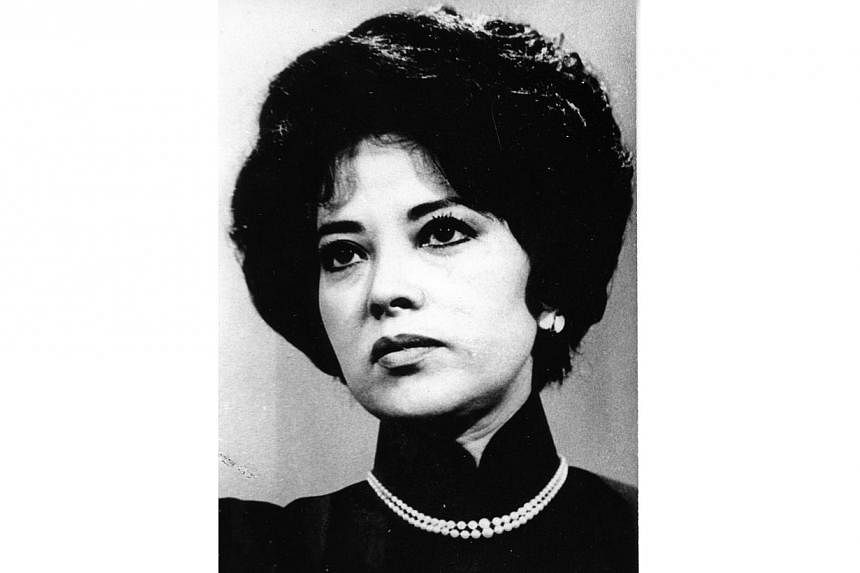Li Xianglan was one of the great pop divas of 1940s Shanghai, alongside Zhou Xuan and Yao Li.
Born Yoshiko Yamaguchi to Japanese parents in Manchuria, Li was given her Chinese name by Chinese godparents when she was a teenager, as the story goes. Around the time, she befriended a Russian Jewish girl about her age when they were on the train from Fushun to Shenyang. It was through the friend that she met a renowned Russian soprano and began learning Western vocal music, a life-changing step that led to an entertainment career.
In the shadow of the Sino-Japanese War, she rose to fame in the late 1930s as an actress in Manchuko, the Japanese-controlled state, and reached new heights of success as a singer in Shanghai in the early 1940s.
She was tried for treason in post-war China and deported to Japan when she was revealed to be of Japanese parentage. She died of heart failure in Tokyo on Sept 7. She was 94 years old.
But her songs, sung in her lyrical soprano voice, are forever. Here are five songs to remember her legend by.
1. Ye Lai Xiang (Tuberose)
Her greatest hit was not written for her, according to Baidu Baike, the online Chinese encyclopaedia.
The rhumba number was composed by EMI music editor Li Jinguang, after he stepped out of a stuffy studio one night in autumn and, in a scenario depicted in the song, encountered a southern wind bearing the fragrance of flowers.
The challenging song spans about two octaves and it was passed among singers from Zhou Xuan to Gong Qiuxia, none of whom could sing it with ease, said Baidu Baike.
The song sheet was basically gathering dust on Li's desk, when Li Xianglan saw it while she was recording a song at EMI. She started singing Ye Lai Xiang and realised it was the song of her dreams.
Upbeat and sensual, the song was a hit for her in 1944, although it was later banned in China for its association with Japanese aggression (it was thought of as a drug to lull the Chinese into complacency). The song has been covered by singers from Teresa Teng to Joanna Wang, but the joie de vivre of Li's version remains unrivalled.
2. Hen Bu Xiang Feng Wei Jia Shi (If Only We Had Met Before I Married)
The song of romantic regret is another of Li's hits. Lush and wistful, it is the gold standard by which later versions by Teresa Teng and Tsai Chin are measured. Listen to Li, and what you hear is a woman's hope blossoming and withering in wondrous slow motion.
3. Suzhou Nocturne
Li sang the song by Japanese composer Ryoichi Hattori for China Nights, her 1940 film that came to be seen as pro-Japanese propaganda. She also came to regret making the movie, and reported having sleepless nights about it late in life.
However, the song seems to have been rehabiliated. It is played in the 1997 Hong Kong film The Soong Sisters, in a scene about the anti-Japanese forces during the war.
4. San Nian (Three Years)
The song has been covered by Tsai Chin and Fei Yu-ching, but the tender heartache of Li's version is fresh even today.
5. Li Xianglan
Okay, so the song is not by her. It just bears her name. But Jacky Cheung's haunting song of lost love, which is his cover of a J-pop hit, is a fitting tribute to Li.
If you have to be literal about it, the connection of the song to Li's story has been spelled out by Stephen Chow in the 1997 film From Beijing With Love, where he sings the song to Anita Yuen's double agent, a woman with loyalties as divided as Li's might have been long ago.

